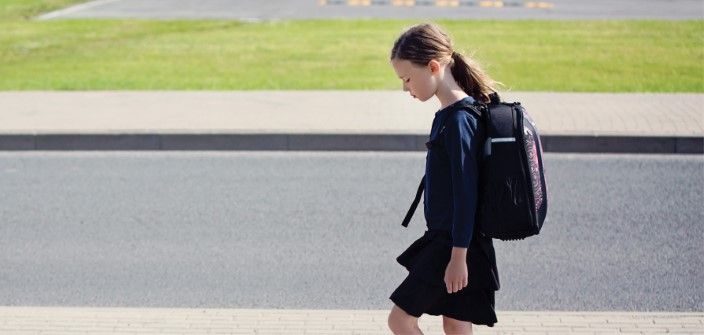
It takes a team effort to get a reluctant child back to school, writes Will Brodie.
A scooter, a cute dog, and a drone. These are just some of the tools of trade used at Bayside School Refusal Clinic in Melbourne by family therapist John Chellew as he battles the rising incidence of school refusal.
His ‘walk and talk’ outdoor sessions aim to engage kids in activities they enjoy so they feel more comfortable discussing why they’re anxious about attending school.
Up to 30 percent of students experience school refusal at some time in their education, but Chellew says the incidence of refusal has tripled since pandemic lockdowns. In 2021, Monash Health’s Associate Professor Michael Gordon reported a 40 percent increase in referrals.
School refusal is not ‘wagging’ or truancy. Rather, it’s non-attendance related to worry or anxiety about going to school.
“Students who refuse to go to school don’t typically engage in the antisocial behaviours usually linked with truancy (such as lying, stealing or destruction of property),” Dr Gordon says. “Unlike truancy, the absence isn’t usually hidden from family. In fact, families may have attempted many strategies to reduce the child or young person’s anxiety to help them attend school.”
School refusal is not a formal psychiatric diagnosis, it’s a title for an emotional and/or behaviour problem. However, there can be serious mental conditions underlying refusal, which must be assessed when return to school planning is considered.
Refusal can jeopardise a student’s relationships, create conflict within families, and even affect income if parents or carers are forced to stay home with a child. They have been associated with mental health problems, relationship issues, and unemployment later in life.
Most advice on the topic understandably focuses on parents, but schools and teachers are a crucial part of dealing with school refusal. It takes a team effort to get a reluctant student back to the classroom.
Signs of school refusal
If a student has missed school two or three times over a two-week period, they could be developing a pattern of school refusal. Dr Gordon suggests if a child misses class six times, it should automatically trigger a follow-up from school.
Dr Kathleen Tait, Associate Professor at Macquarie School of Education, says changes in non-verbal behaviours of students can denote possible issues. Increased fidgeting, avoidance of eye contact, wriggling restlessly, and asking to go to the toilet more often than usual are all potential pointers to a child struggling with anxiety and at risk of school refusal.
She suggests teachers have a quiet one-on-one chatwith students who sit by themselves during break times.They can also install a ‘Friday Fun Day’ where students can bring their favourite toy if they are ‘brave’ and attend throughout the week.
Parents or teachers who notice the following behaviours need to meet to discuss the child’s issues:
- tearfulness before school or repeated pleas to stay at home resulting in frequent lateness or absences
- tantrums, clinginess, dawdling or running away before school or during drop off
- frequent complaints of illness before or during school such as stomach aches, headaches, dizziness, or fatigue
- difficulty attending school after weekends, holidays, school camps or sports days
- long periods spent in sick bay or in the principal’s office.
- cry, throw tantrums, yell, or scream
- hide or lock themselves in their room
- refuse to move
- beg or plead not to go
- complain of aches, pains, and illness before school, which generally get better if you let your child stay at home
- show high levels of anxiety
- have trouble sleeping
- threaten to hurt themselves.







































































































































